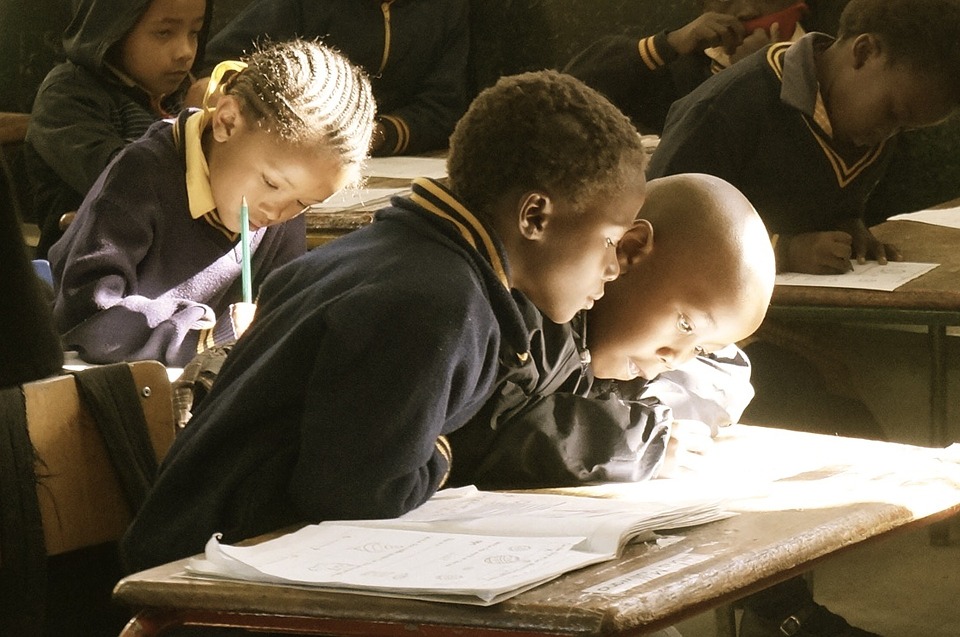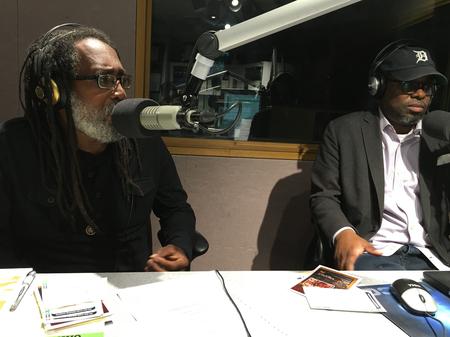The Intersection: African-Centered Schools in Detroit
Can African-centered schools work as “an attempt to repair ourselves” in Detroit?

“African-centered education in some way is a response to this system, which has never really been inclusive to people of African descent. Not only has it not been inclusive in terms of the resources, it has not been inclusive in terms of the intellectual approach to learning,” — Malik Yakini
Earlier this year some Detroit children headed to a makeshift school when their parents were fed up with the conditions and finances in the city’s public district.
That school, named a Freedom School, is part of a decades-old movement for African-centered education that’s grown and shrunk – often with political movements — but ultimately survives in Detroit.
“There was a point when the whole district had committed to African-centric education,” says Sascha Raiyn, WDET’s education reporter.
Raiyn and Malik Yakini, who formerly operated a school with an African-centered curriculum, joined Host Stephen Henderson on Detroit Today to discuss the past, future and legacy of this approach to education.
Yakini, now executive director of the Detroit Black Community Food Security Network, founded the now-closed Nsoroma Academy, once one of dozens of African-centric schools in the city.
“We used to say that Detroit was really the capital of African-centered education because there were more schools here than any place in the world, not just the United States. We created this tremendous example and have this tremendous legacy,” Yakini says.
African-centered education, by Yakini’s definition, is “an attempt to situate black children in their own historical continuums” in part by using classroom materials that portray African Americans in a fair and just way and include their contributions to history, literature, science and other disciplines.
“I don’t think there’s a unifying definition about what African-centered education is,” Yakini says.
There’s also a bigger political, civil rights dynamic to it.

“One of the premises, one of the basic understandings that we have to have, that guides African-centered education, is that white supremacy, the system of white supremacy is still a dominant force in American society. I think the testimonies that you had on your last segment about white flight continues to speak to that. So African-centered education in some way is a response to this system, which has never really been inclusive to people of African descent. Not only has it not been inclusive in terms of the resources, it has not been inclusive in terms of the intellectual approach to learning.”
African-centered education is a resource, an intellectual approach to learning that counters the dominant Eurocentric approach, Yakini says. “School in this country is still very much rooted in the experience of people from western Europe,” he says.
Because of that, the experiences, culture and viewpoints of African Americans are not as well represented in education as they should be, according to Yakini.
“Your history and your culture is marginalized. This is what happens historically whenever one people conquers another,” Yakini says. “The culture and the world view of white Americans who are the dominant force in society is imposed upon African people.”
Raiyn says the other Freedom Schools in Detroit today are a modern-day example of a product of the Civil Rights Movement. “It began to kind of move quickly and powerfully this past spring when there was a threat that by the end of that particular week, Detroit schools would not continue to function,” Raiyn says.
In fact, the Kerner Commission report, which attempted to explain the causes of urban violence and protest in the 1960s cited poor educational systems as one of the sources. The report also identified improving education as something that could improve conditions for African Americans.
Today’s Black Lives Matter movement and responses to, for example, the state of Texas seeking to minimize the horrors of slavery in textbooks, are dynamics that could increase support for African-centered education.
“African-centered education tends to enjoy larger levels of support when we see larger levels of black activism,” Yakini says. “As black activism has waned, we see a waning level of African-centered education.”
To hear the full conversation, click on the audio link above.
